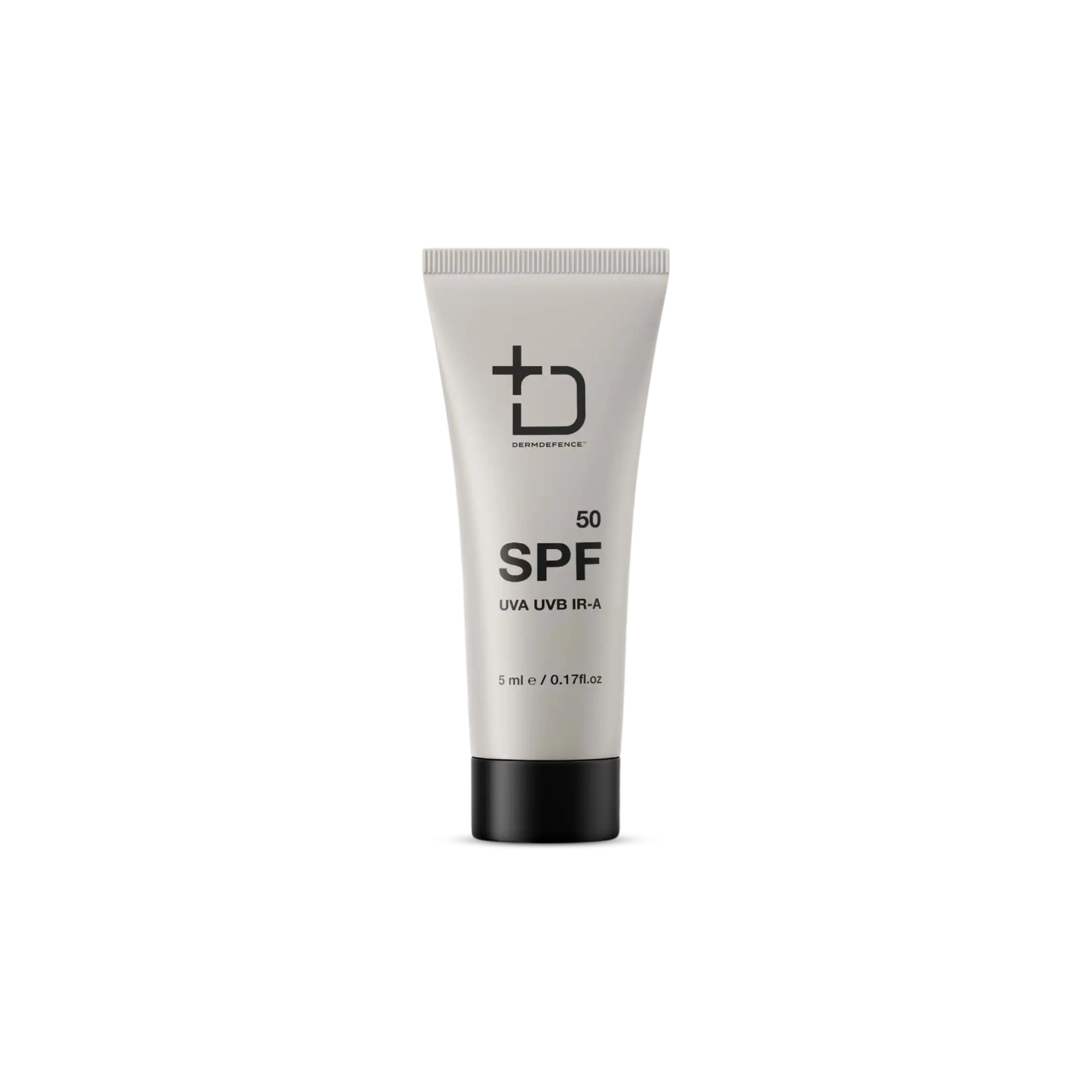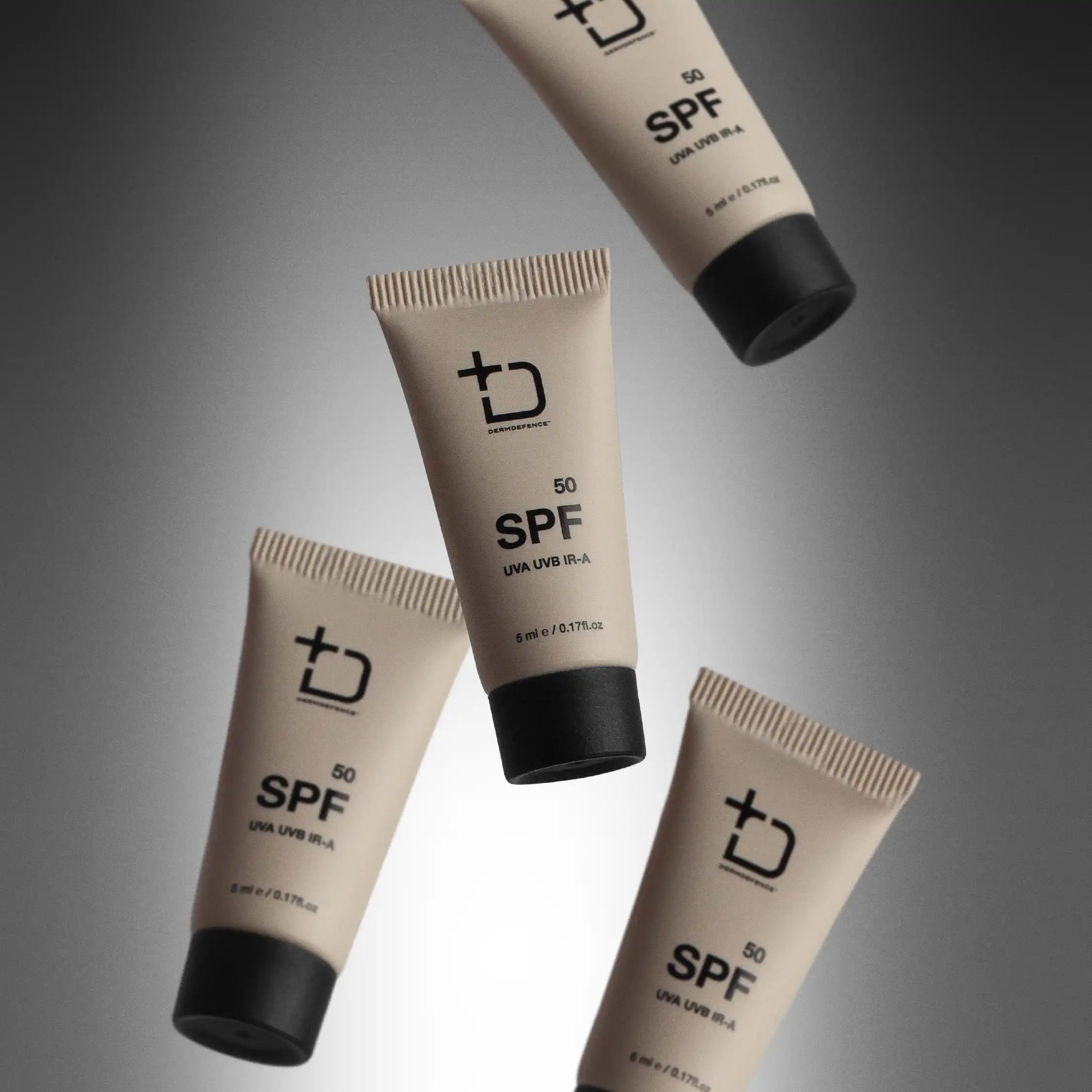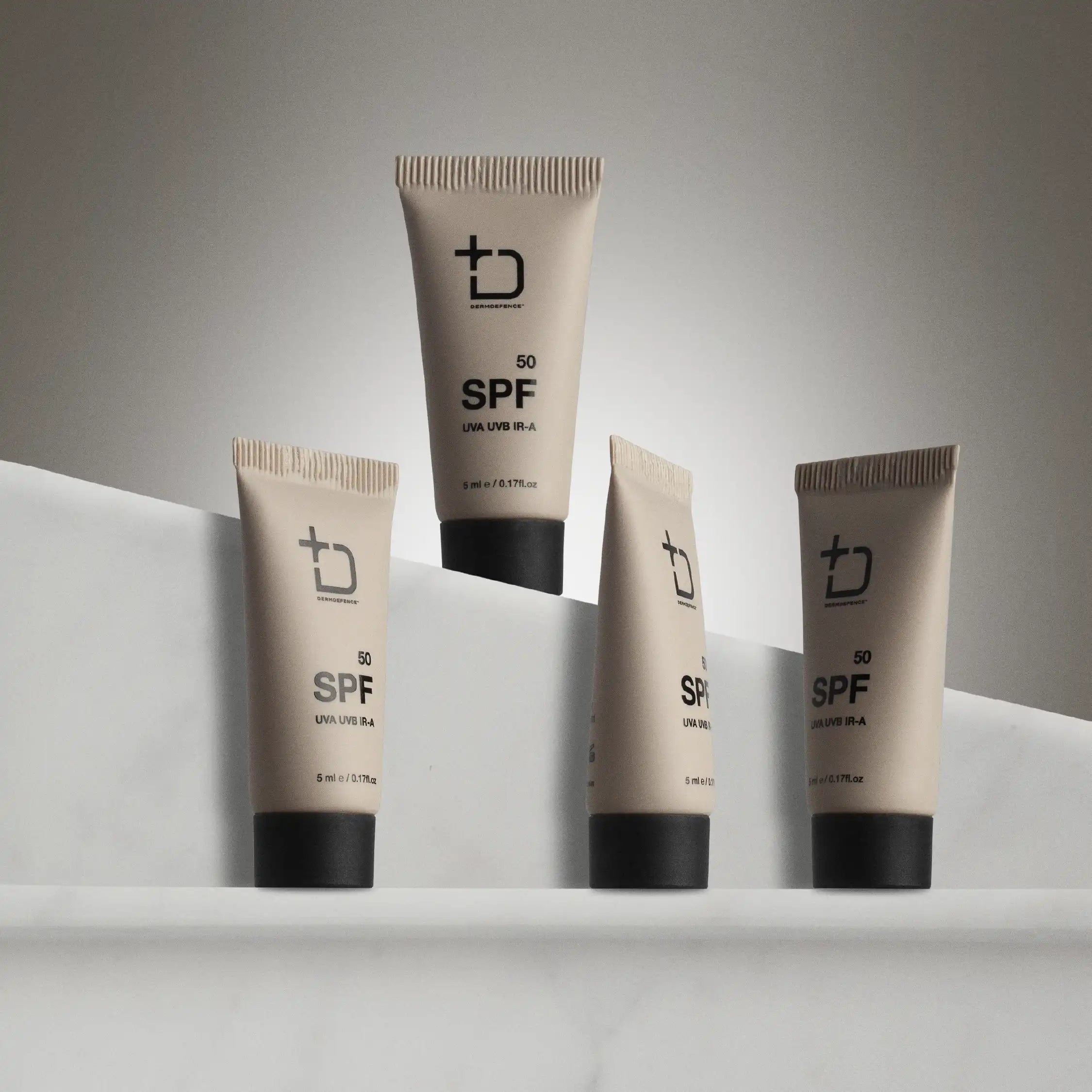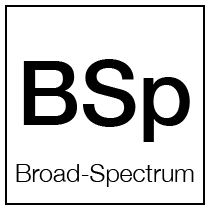






Pay interest-free installments from R 16.50 with various payment gateways selected at checkout.
SIZE: 5 mL




Choose options



Aqua, Octyl methoxycinnamate (Uvinul® MC 80), Butyl methoxydibenzoylmethane (Avobenzone), Propylene glycol, Ethylhexyl salicylate (Octisalate), Cetyl alcohol, Glycerine, Sorbitan mono stearate, Polysorbate 20, Bis-ethylhexyloxyphenol, Methoxyphenyl triazine (Tinosorb S), Homosalate, Squalane, Ubiquinone, Phenoxyethanol, Ethylhexyl glycerine, Tocopherol (Vitamin E), Triethanolamine, Dimethicone, Acrylate crosspolymer, Disodium EDTA
Dermdefence SPF 50: Travel Size
product benefits
No white cast & Lightweight
Anti-Aging
DNA Damage Protection
Makeup Primer
Non-Irritating
Hydrating
Indications for Dermdefence SPF 50: Travel Size
Infrared & Blue light protection
UVA and UVB protection
Aging Skin
Dry Skin
dermdefence
mode of action

sun protection
Dermdefence SPF 50: Travel Size
specifications
| protection | value |
|---|---|
| SPF - Sun Protection Factor | 50 |
| UVA - Ultraviolet A | 95% (protection against at least 95% of UVA rays) |
| UVA Balance | > 33% |
| UVA-PF | > 20 |
| PA-UVA | PA ++++ |
| PPD | > 20 |
| UVB - Ultraviolet B | 98.18% (protection against at least 98.18% of UVB rays) |
| Critical Wavelength Protection | > 378nm |
Testimonials


Not sure which products you need?
Find your regimen
Assessment
Submit your free Dermal Diagnosis™ Assessment
Treatment Plan
Receive your Free Personal Profile and Treatment Plan
Confident Skin
Start your Simple and Effective journey to Confident Skin!

















